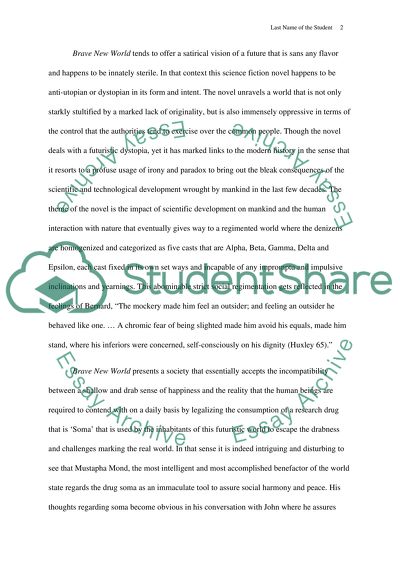Cite this document
(“The book called Brave New World Essay Example | Topics and Well Written Essays - 1500 words”, n.d.)
Retrieved from https://studentshare.org/english/1488474-the-book-called-brave-new-world
Retrieved from https://studentshare.org/english/1488474-the-book-called-brave-new-world
(The Book Called Brave New World Essay Example | Topics and Well Written Essays - 1500 Words)
https://studentshare.org/english/1488474-the-book-called-brave-new-world.
https://studentshare.org/english/1488474-the-book-called-brave-new-world.
“The Book Called Brave New World Essay Example | Topics and Well Written Essays - 1500 Words”, n.d. https://studentshare.org/english/1488474-the-book-called-brave-new-world.


